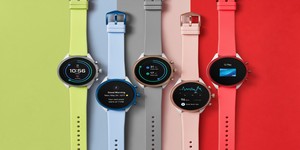
Manufacturing giant Foxconn is reportedly setting up a seed fund to dip its toe into the burgeoning wearable computing market, offering a share of more than £4 million to cash-hungry start-ups.
Wearable computing isn't exactly a new concept - readers of a certain age will almost certainly remember the brief heyday of the calculator watch - but it's certainly enjoying a resurgence today. In addition to smart watches from a variety of big-name companies - with Apple rumoured to be joining the fold in the near future - the market is enjoying numerous column inches as a result of Google's Project Glass hardware, due for a commercial release some time next year.
Now, Foxconn wants a slice of the action - and it's willing to invest a considerable quantity of cash to ensure that happens. According to a report in Bloomberg, the company - which is most well known for manufacturing Apple's mobile computing line - is to set up an investment fund totalling more than £4 million for start-up companies in the wearable computing business. The fund will be managed from the company's yet-to-open Taipei Information Park building, the site's sources claim, with two floors holding a start-up incubator and additional offices for companies that successfully use the funding to launch their products into the market.
The fund is claimed to be looking at an investment of NT$1 million (around £20,627) each in up to 20 companies in the wearable computing business. While the focus will be on hardware - natural, given Foxconn's manufacturing expertise - some software start-ups will also be selected, the site's sources have stated.
The move comes as Foxconn itself looks to make an increasing number of own-brand products, following flagging sales to its traditional manufacturing customers. Earlier this year, the company announced plans to produce an smart watch product which as well as run a 4G mobile service in Taiwan.
Formal details of the fund are not yet available, with Foxconn refusing to comment on the leak. With the Taipei Information Park not due to open until late 2014, however, it's clear that the investment programme will be a long-term project for the company - and one it hopes will give it an edge as it experiences increased competition for manufacturing work from traditional customers like Apple, Sony and Cisco.
Wearable computing isn't exactly a new concept - readers of a certain age will almost certainly remember the brief heyday of the calculator watch - but it's certainly enjoying a resurgence today. In addition to smart watches from a variety of big-name companies - with Apple rumoured to be joining the fold in the near future - the market is enjoying numerous column inches as a result of Google's Project Glass hardware, due for a commercial release some time next year.
Now, Foxconn wants a slice of the action - and it's willing to invest a considerable quantity of cash to ensure that happens. According to a report in Bloomberg, the company - which is most well known for manufacturing Apple's mobile computing line - is to set up an investment fund totalling more than £4 million for start-up companies in the wearable computing business. The fund will be managed from the company's yet-to-open Taipei Information Park building, the site's sources claim, with two floors holding a start-up incubator and additional offices for companies that successfully use the funding to launch their products into the market.
The fund is claimed to be looking at an investment of NT$1 million (around £20,627) each in up to 20 companies in the wearable computing business. While the focus will be on hardware - natural, given Foxconn's manufacturing expertise - some software start-ups will also be selected, the site's sources have stated.
The move comes as Foxconn itself looks to make an increasing number of own-brand products, following flagging sales to its traditional manufacturing customers. Earlier this year, the company announced plans to produce an smart watch product which as well as run a 4G mobile service in Taiwan.
Formal details of the fund are not yet available, with Foxconn refusing to comment on the leak. With the Taipei Information Park not due to open until late 2014, however, it's clear that the investment programme will be a long-term project for the company - and one it hopes will give it an edge as it experiences increased competition for manufacturing work from traditional customers like Apple, Sony and Cisco.

MSI MPG Velox 100R Chassis Review
October 14 2021 | 15:04








Want to comment? Please log in.